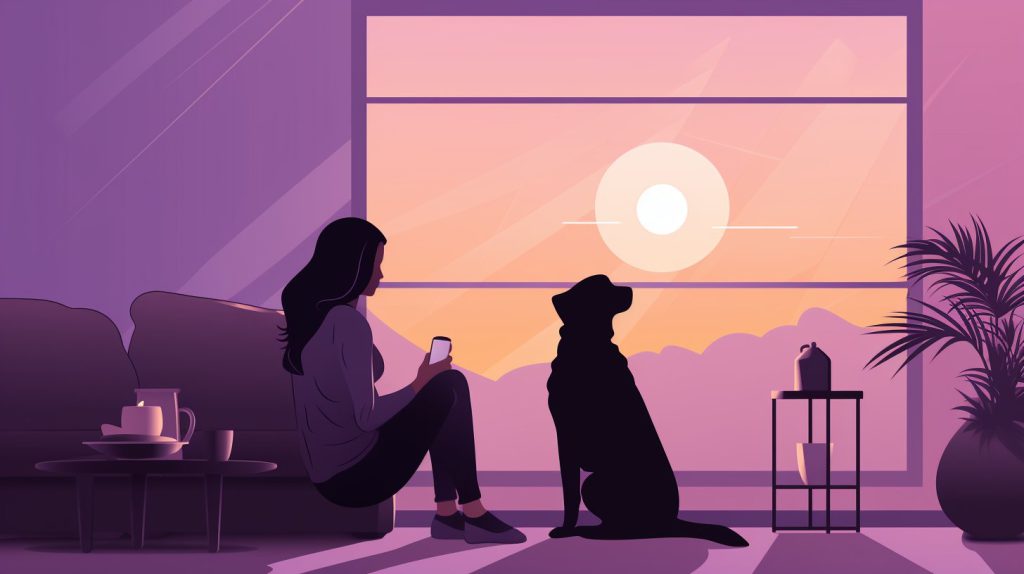Do INTJs Have Anxiety? | INTJ Anxiety Solutions

🎧 Listen to this Article 🎧
In the complex world of personality types, the INTJ (Introverted, Intuitive, Thinking, and Judging) stands out for its unique blend of introspective thinking, strategic planning, and unwavering determination. However, beneath this seemingly stoic exterior, many INTJs experience a hidden struggle: anxiety.
Anxiety is a common mental health concern characterized by feelings of worry, fear, and nervousness. While it affects people from all walks of life, INTJs can be particularly susceptible due to their personality traits.
This article delves into the world of INTJ anxiety, exploring its causes, symptoms, and strategies for management.
Understanding INTJ Anxiety

Several factors contribute to the development of anxiety in INTJs. Prominent among them are:
- Perfectionism and High Expectations: INTJs set incredibly high standards for themselves and strive for excellence in every endeavor. This constant pressure to achieve can lead to anxiety about falling short, even when facing minor challenges.
- Fear of Failure and Judgment: INTJs are sensitive to criticism and judgment, fearing it will expose their perceived flaws and weaknesses. This fear can paralyze them with anxiety, hindering their ability to take risks and embrace new opportunities.
- Difficulty Expressing Emotions and Vulnerability: INTJs often find it challenging to express their emotions and vulnerabilities, leading to internalized feelings of anxiety and stress. This bottling up of emotions can exacerbate the problem, making it difficult to seek support and manage anxiety effectively.
- Overthinking and Dwelling on Possibilities: INTJs’ analytical minds can become preoccupied with worst-case scenarios and potential pitfalls. This overthinking can lead to a distorted perception of reality, fueling anxiety and fear.
- Feeling Misunderstood and Alienated: INTJs’ introverted nature and independent thinking can make them feel misunderstood and isolated. This sense of alienation can contribute to anxiety and loneliness.
- Sensory Overload and External Stimulation: INTJs are sensitive to external stimuli, which can quickly overwhelm them and trigger anxiety. They often crave solitude and quiet environments to recharge and function optimally.
| Read more: The Link Between INTJs and Mental Illness
Symptoms of Anxiety in INTJs

Anxiety can manifest in various ways for INTJs, often differently than for other personality types. Here are some common examples:
- Social anxiety: INTJ with anxiety may experience intense fear of judgment and social situations, leading to avoidance and isolation. They may overanalyze their interactions and worry about making mistakes or being rejected.
- Performance anxiety: INTJs often set high standards for themselves and can become anxious about failing to meet their expectations. This can manifest in procrastination, perfectionism, and difficulty delegating tasks.
- Existential anxiety: INTJs are prone to deep thinking and questioning the meaning of life and their place in the universe. This can lead to INTJ anxiousness about the unknown, mortality, and the future.
- Fear of failure: INTJs’ intense need for control and perfectionism can contribute to a strong fear of failure. This can paralyze them with indecision and prevent them from taking risks or pursuing their goals.
- Physical: Increased heart rate, sweating, muscle tension, fatigue, and sleep problems.
These anxieties can significantly impact various aspects of an INTJ’s life, including their academic performance, career advancement, relationships, and overall well-being.
| Discover: INTJ and Social Anxiety | Do INTJs Have Social Anxiety?
Strategies for Managing INTJ Anxiety

Living with INTJ anxiety can be challenging, but there are effective strategies to manage it and improve your overall well-being.
Developing Self-Awareness
- Identify triggers: Pay attention to situations and thoughts that trigger your anxiety. This can help you anticipate and manage your response.
- Challenge negative thoughts: Recognize and challenge negative thought patterns that fuel anxiety. Replace them with more realistic and positive self-talk.
- Practice mindfulness: Meditation and mindfulness exercises can help you become more present in the moment and detach from anxious thoughts and worries.
- Build self-compassion: Be kind and understanding toward yourself. Accept that anxiety is a normal human experience and avoid criticizing yourself for having it.
Building Healthy Coping Mechanisms
- Exercise regularly: Physical activity releases endorphins, which have mood-boosting effects and help reduce anxiety.
- Relaxation techniques: Techniques like deep breathing and progressive muscle relaxation can effectively calm your body and mind.
- Spend time in nature: Immersing yourself in nature can provide a sense of peace and reduce stress levels.
- Engage in hobbies: Engaging in activities you enjoy can distract you from anxious thoughts and promote relaxation.
- Set realistic goals: Avoid setting unrealistic expectations for yourself. Break down large goals into smaller, more manageable steps.
- Prioritize sleep: Getting enough sleep is essential for managing anxiety and overall well-being.
- Eat a healthy diet: Eating nutritious foods can improve your mood and energy levels.
Building a Strong Support System
- Connect with friends and family: Talking to supportive loved ones can help you feel less alone and gain valuable perspective.
- Join a support group: Connecting with other INTJs who understand your experiences can be incredibly helpful and validating.
- Seek professional help: Don’t hesitate to seek help from a therapist or counselor. They can provide personalized guidance and support for managing your anxiety.
| Suggestion for INTJs: INTJ and Depression
Additional Tips
- Limit caffeine and alcohol: These substances can exacerbate anxiety symptoms.
- Practice gratitude: Focusing on things you are grateful for can shift your mindset and reduce anxiety.
- Learn to say no: Don’t overload yourself with commitments and activities that add to your stress.
- Create a calming environment: Surround yourself with sights, sounds, and smells that promote relaxation.
Learn more…
HealWiser’s Last Piece of Advice
While INTJ anxiety can present significant challenges, remember you are not alone. Understanding your unique triggers and symptoms empowers you to take control and navigate life with greater clarity and calm. By implementing the strategies outlined in this article, you can develop effective coping mechanisms, build resilience, and unlock your full potential.
Sharing your experiences can provide valuable insights and emotional support. So…
…share your experience with HealWiser and others in the comments section below this post.





